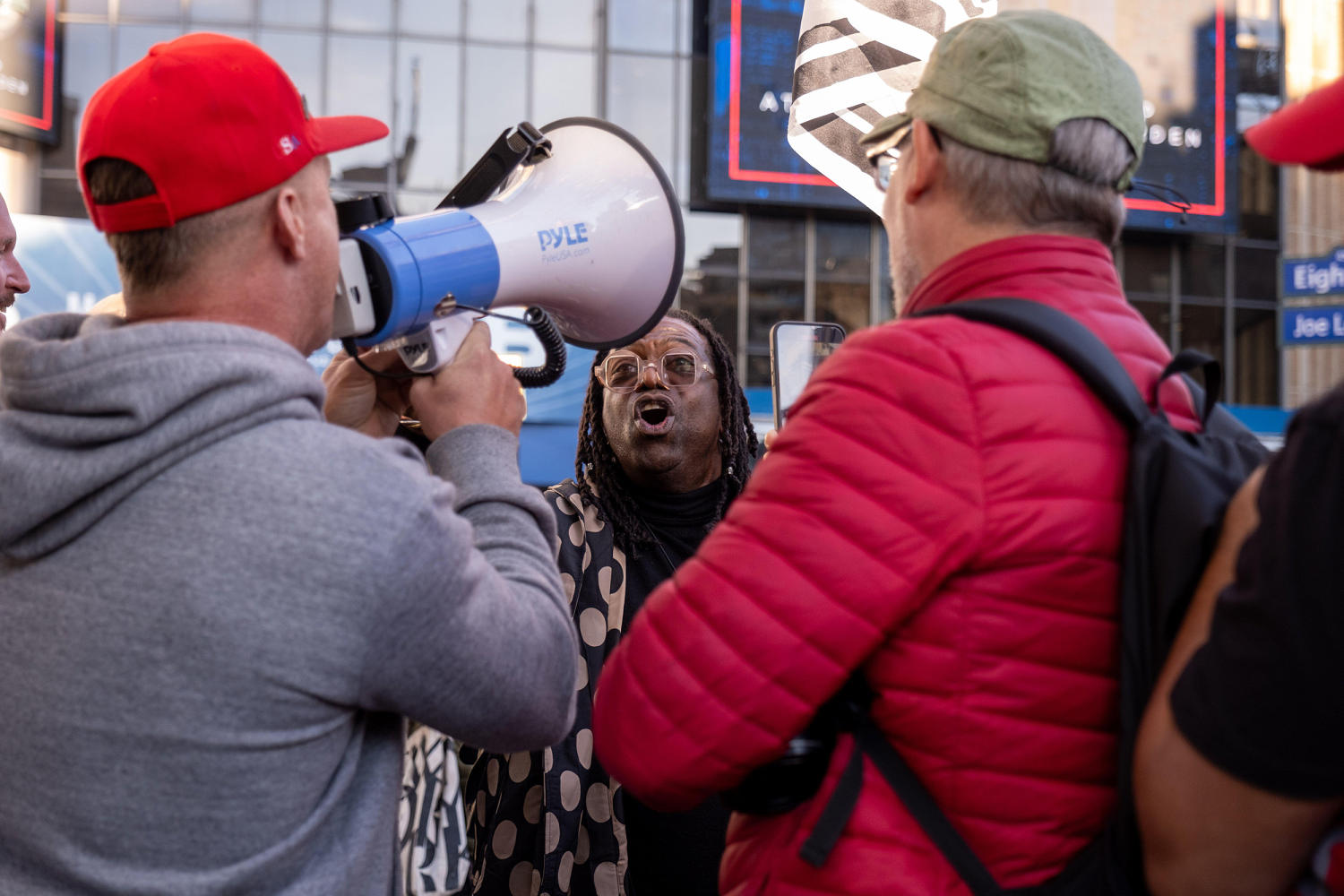The word of the year, according to Merriam-Webster, is one that bridges the divide.
Polarization is defined as division into two stark opposites; in particular, a state in which the opinions, beliefs, or interests of a group or society no longer range along a continuum but instead become concentrated at opposing extremes, according to the dictionary publisher’s announcement on Monday that it is its 2024 word of the year.
Following a fierce election that saw Donald Trump emerge victorious, the announcement was made.
According to the dictionary, the volume of searches on Merriam-Webster.com throughout the year demonstrated Americans’ eagerness to learn more about the complicated situation both domestically and internationally.
According to Merriam-Webster, the word was used a lot by the media this year, especially while discussing politics and the presidential election on networks like MSNBC and Fox News. (NBCUniversal, the parent company of MSNBC and NBC News, is owned by Comcast.)
The dictionary’s list of words of the year also included a number of other political phrases, such as democracy.
According to Merriam-Webster, “democracy” attracted nonpartisan attention in both red and blue states, with people searching for the definition to fully grasp its meaning and to debate, praise, and defend it.
Despite not being mentioned in the Constitution or the Declaration of Independence, democracy has long been a topic of discussion in the United States and around the world, rarely more so than it is today, according to the dictionary’s explanation.
Merriam-Webster reports that when a number of conservative news outlets accused Vice President Kamala Harris of caving in to various groups, such as young voters, Black voters, and gun rights advocates, search interest in the word “pander” increased around the middle of October. Additionally, the dictionary included Minnesota Governor Tim Walz’s statement on The View that Trump’s visit to McDonald’s “showed that he would ‘pander and disrespect'” its employees.
According to Merriam-Webster, the term “weird,” which means “strange or extraordinary character,” also gained popularity in July after Harris’ running mate, Walz, made references to “weird people on the other side.”
Politics is not always linked to cognitive, which is defined as of, relating to, being, or involving conscious intellectual activity. However, Merriam-Webster reported that the word witnessed an increase in lookups this year for a number of reasons related to the U.S. election, including the health of Donald Trump and President Joe Biden.
The list also included certain terms from internet culture in addition to politically charged terms. After TikTokerJools Lebronkicked off a meme that dominated the internet, the term “demure,” which refers to persons who avoid bringing attention to themselves, became more popular, according to Merriam-Webster.
People also looked up terms associated with current events, such as “totality,” which means “the phase of an eclipse during which it is total,” following the solar eclipse in April, and “allision,” which describes a collision between a marine vessel and a stationary object, which many people looked up after the collapse of the Francis Scott Key Bridge in Baltimore in March.
The Merriam-Webster list comes after a number of other such roundups. Oxford University Press named brain rot its word of the year last week, alluding to the hyper-online speech patterns that young Gen Zers and Gen Alpha have made popular. In the meantime, the Charli XCX album became part of the summertime cultural zeitgeist, and Collins Dictionary named it the year’s best word.
Note: Every piece of content is rigorously reviewed by our team of experienced writers and editors to ensure its accuracy. Our writers use credible sources and adhere to strict fact-checking protocols to verify all claims and data before publication. If an error is identified, we promptly correct it and strive for transparency in all updates, feel free to reach out to us via email. We appreciate your trust and support!






